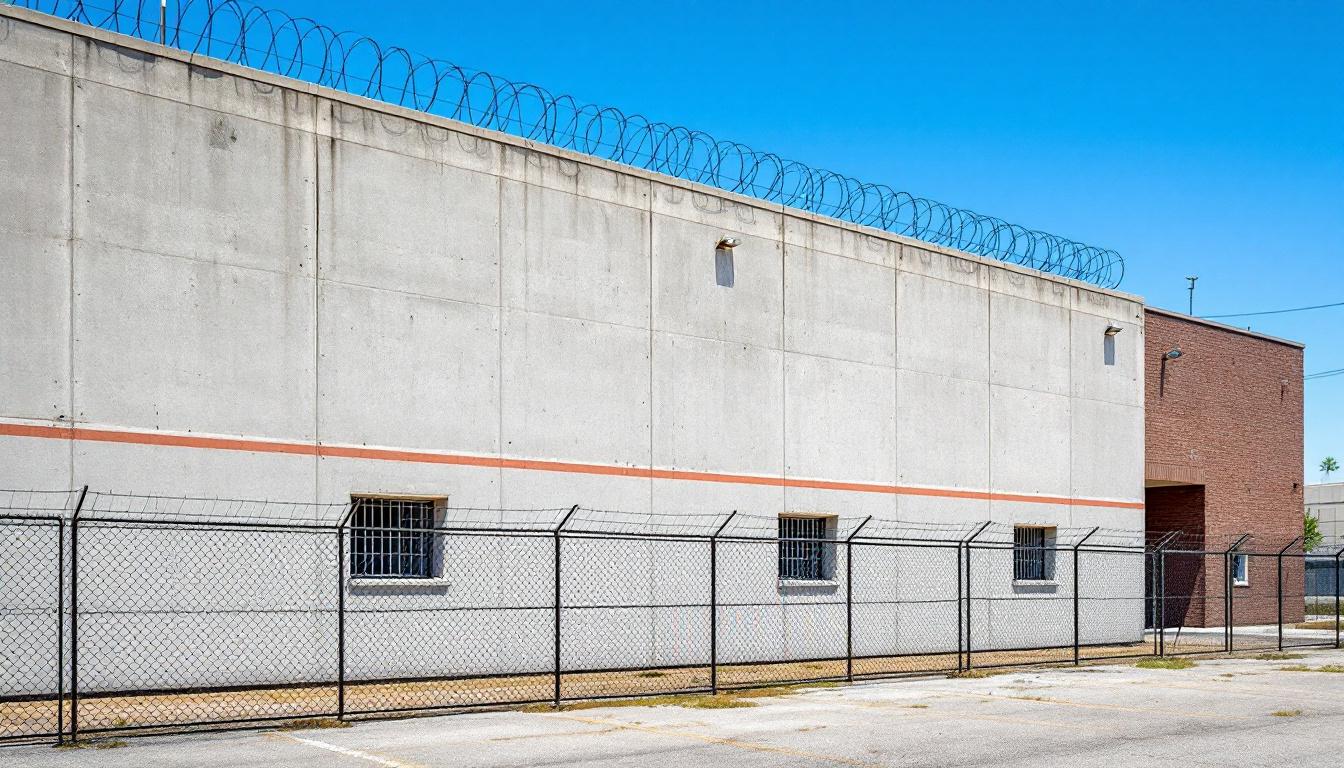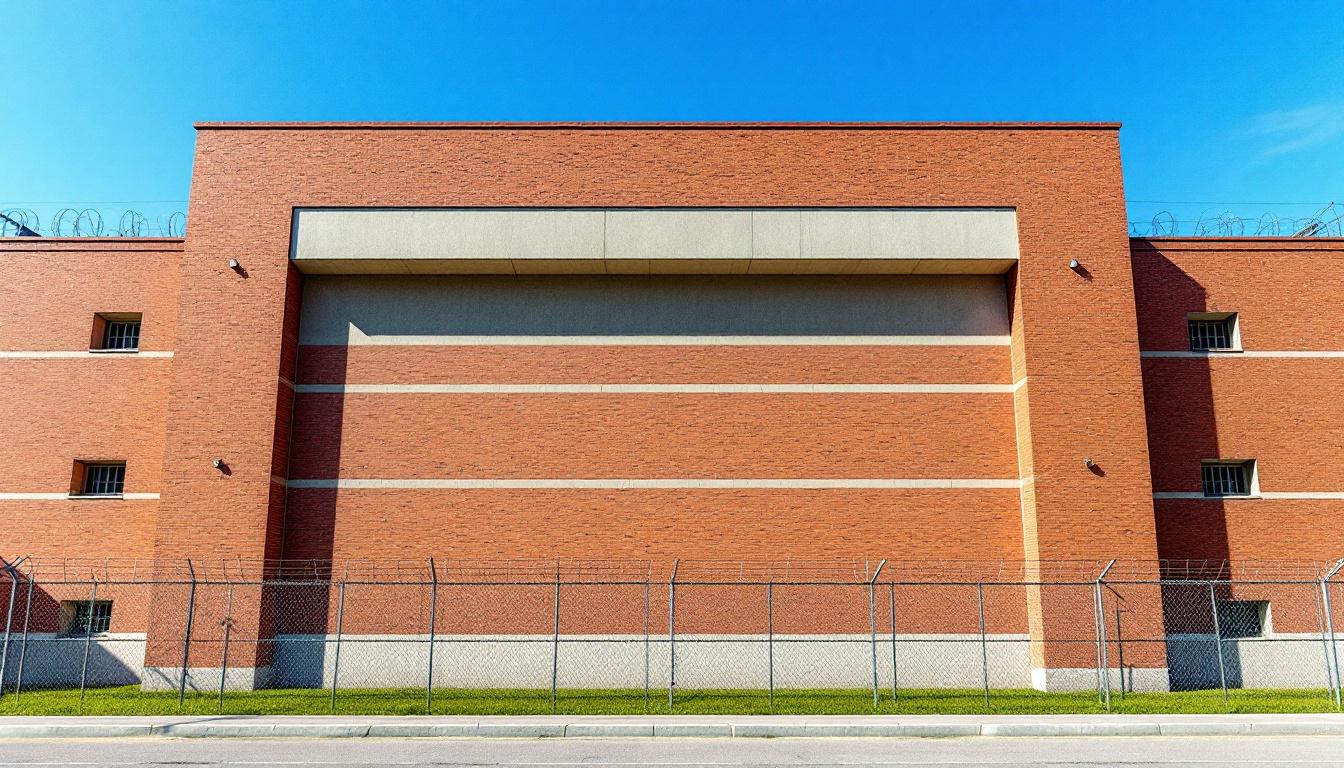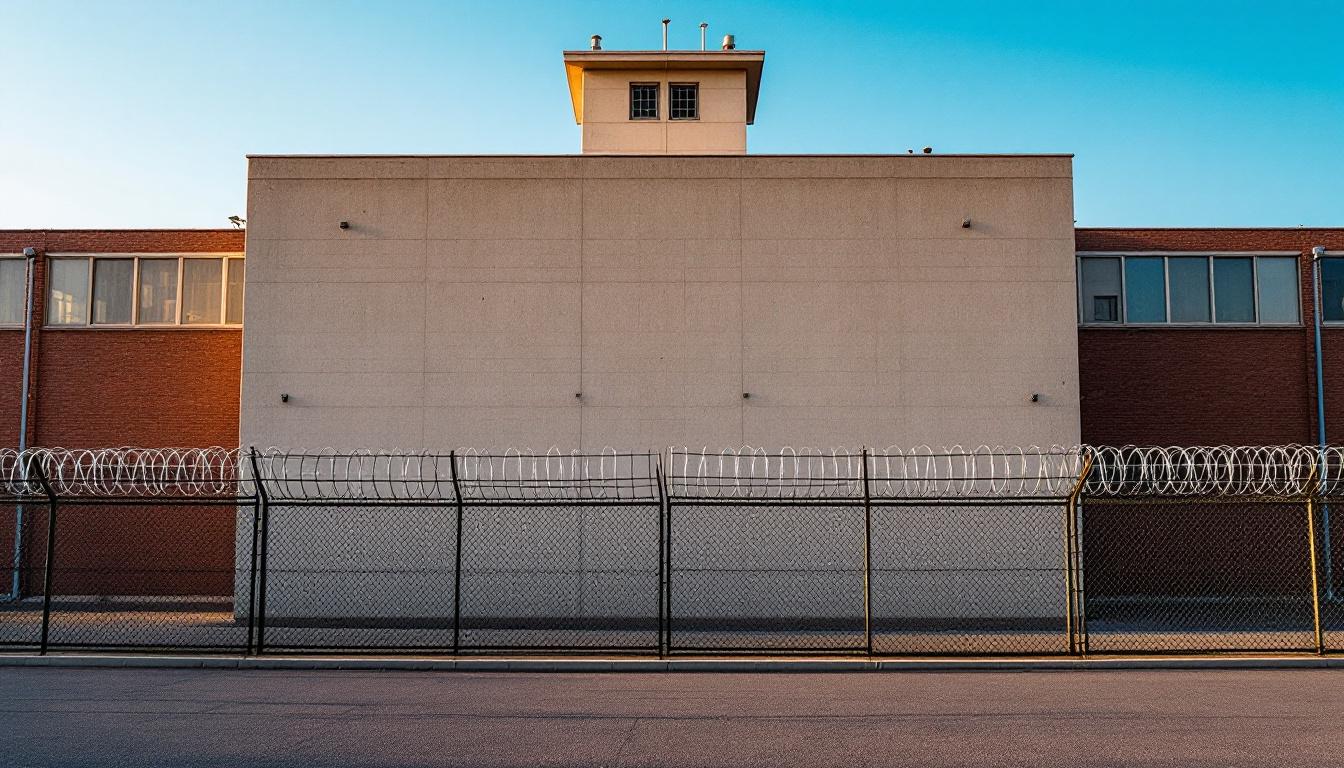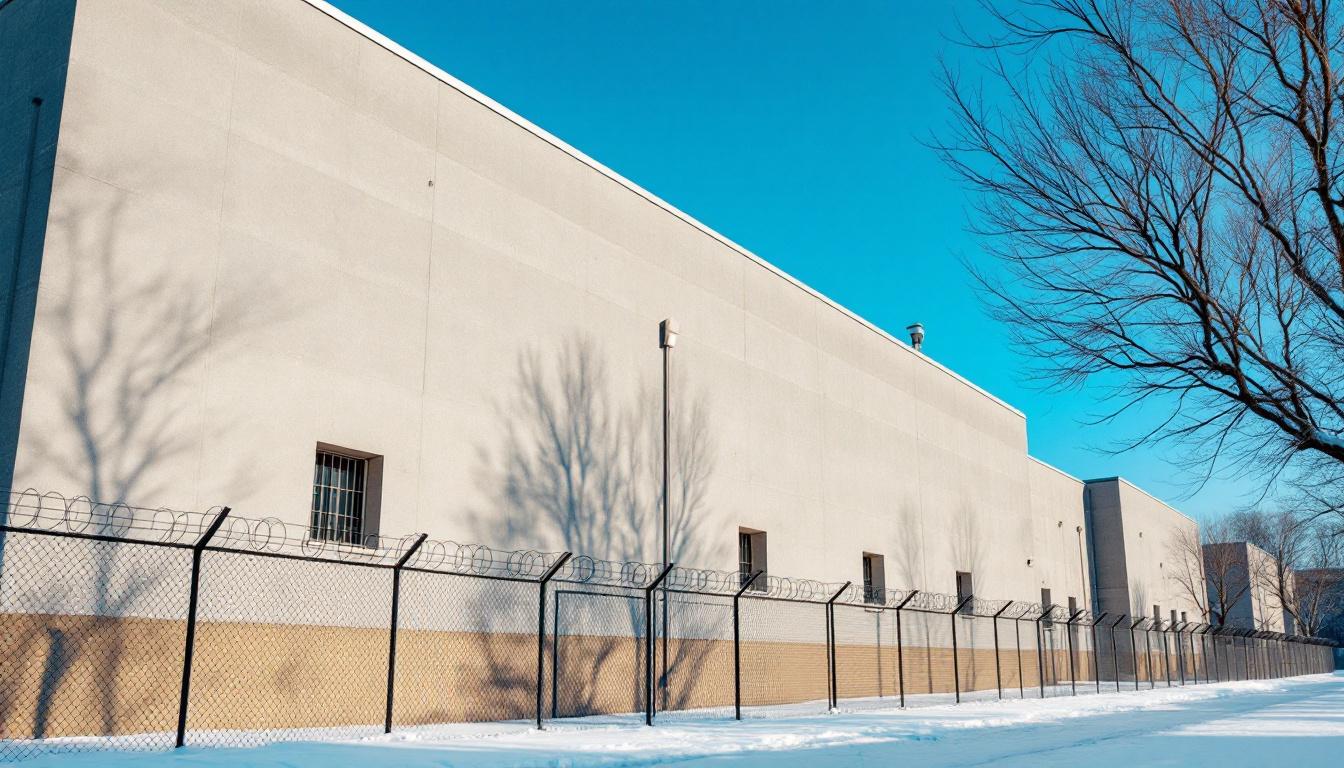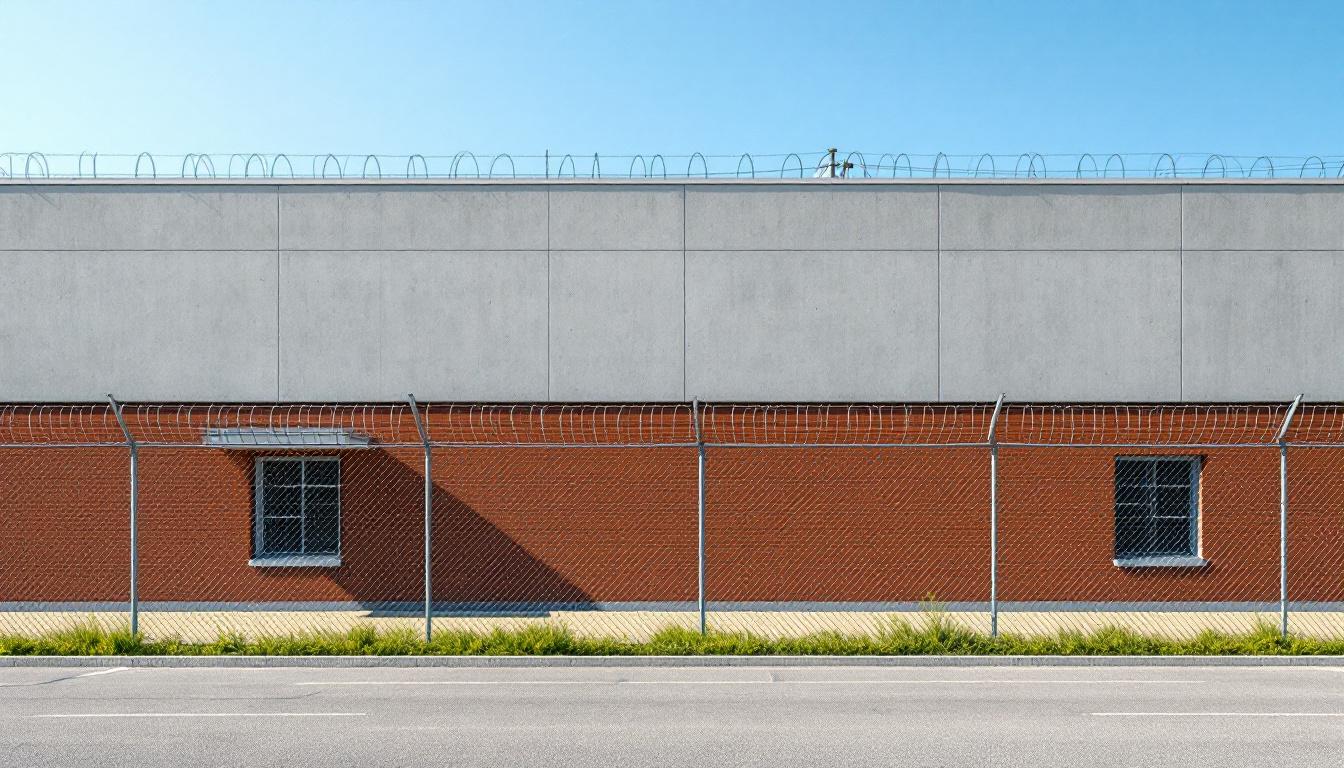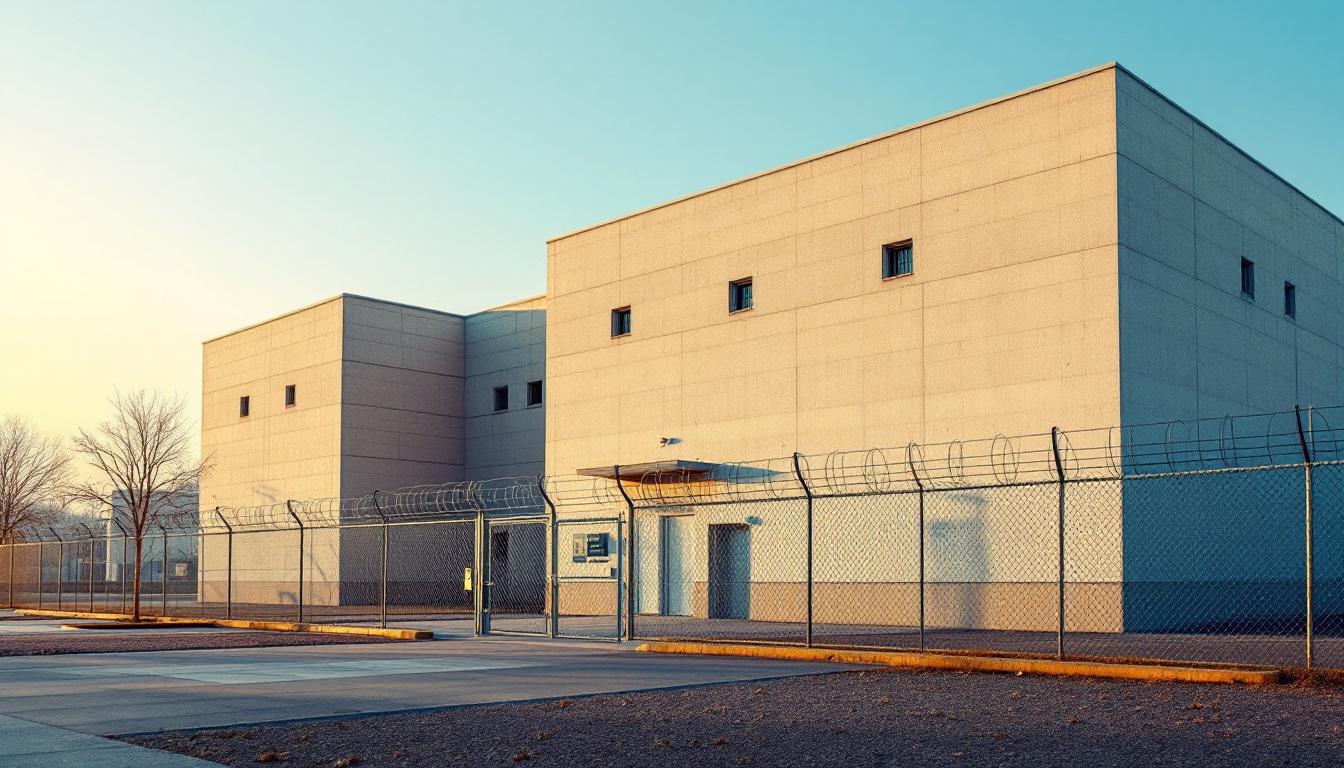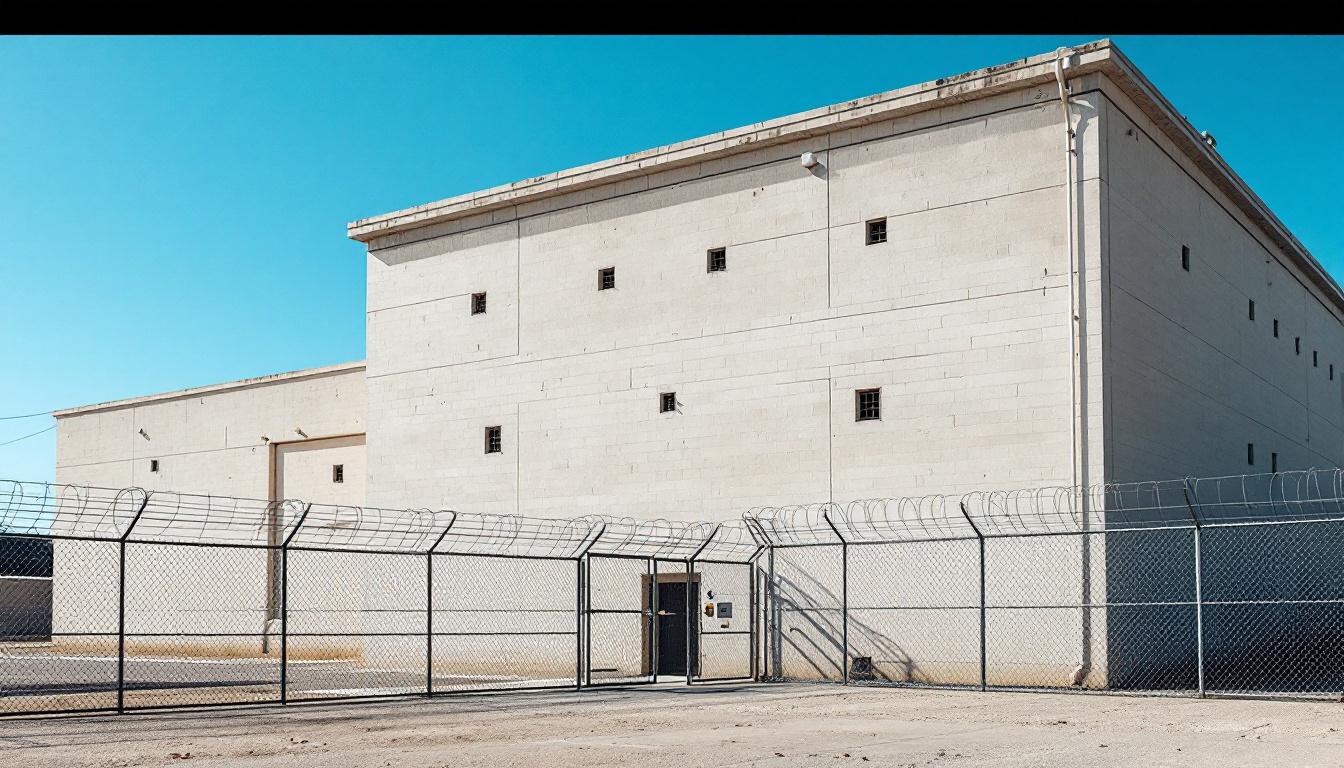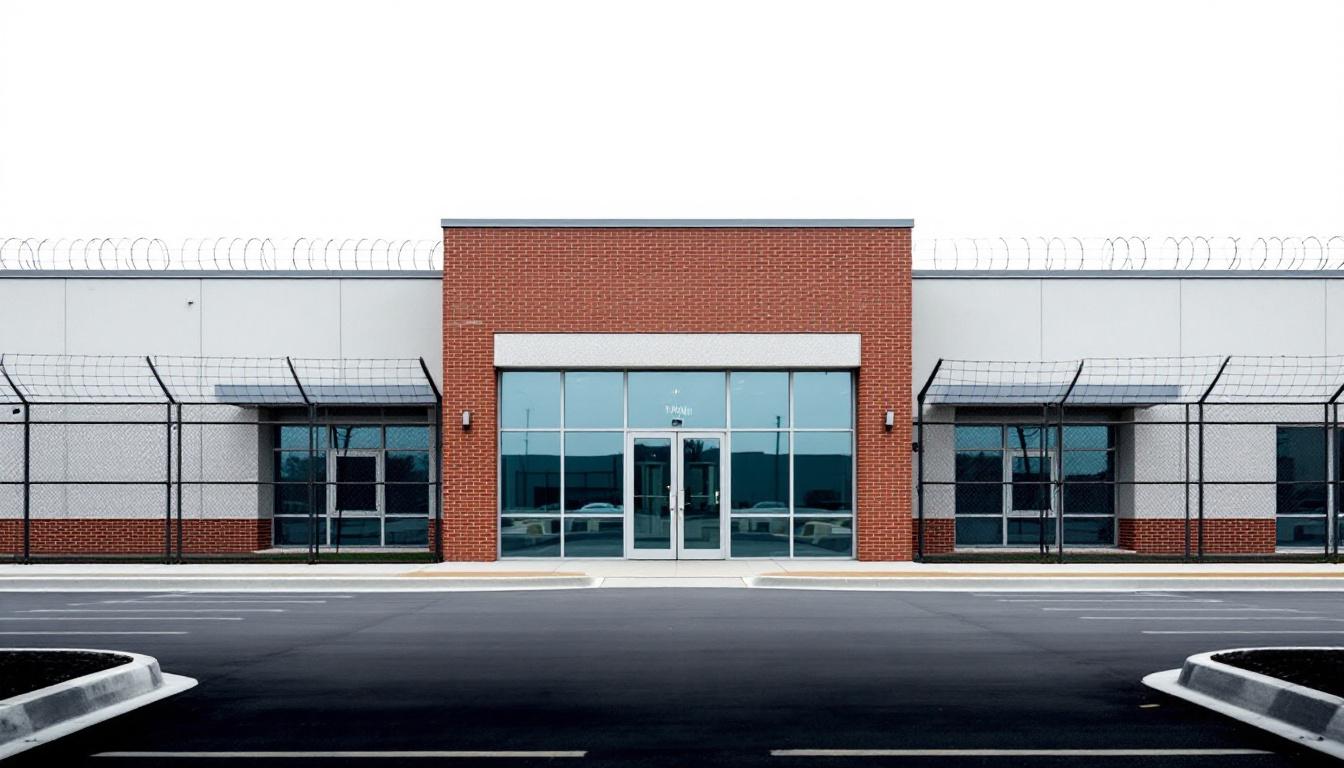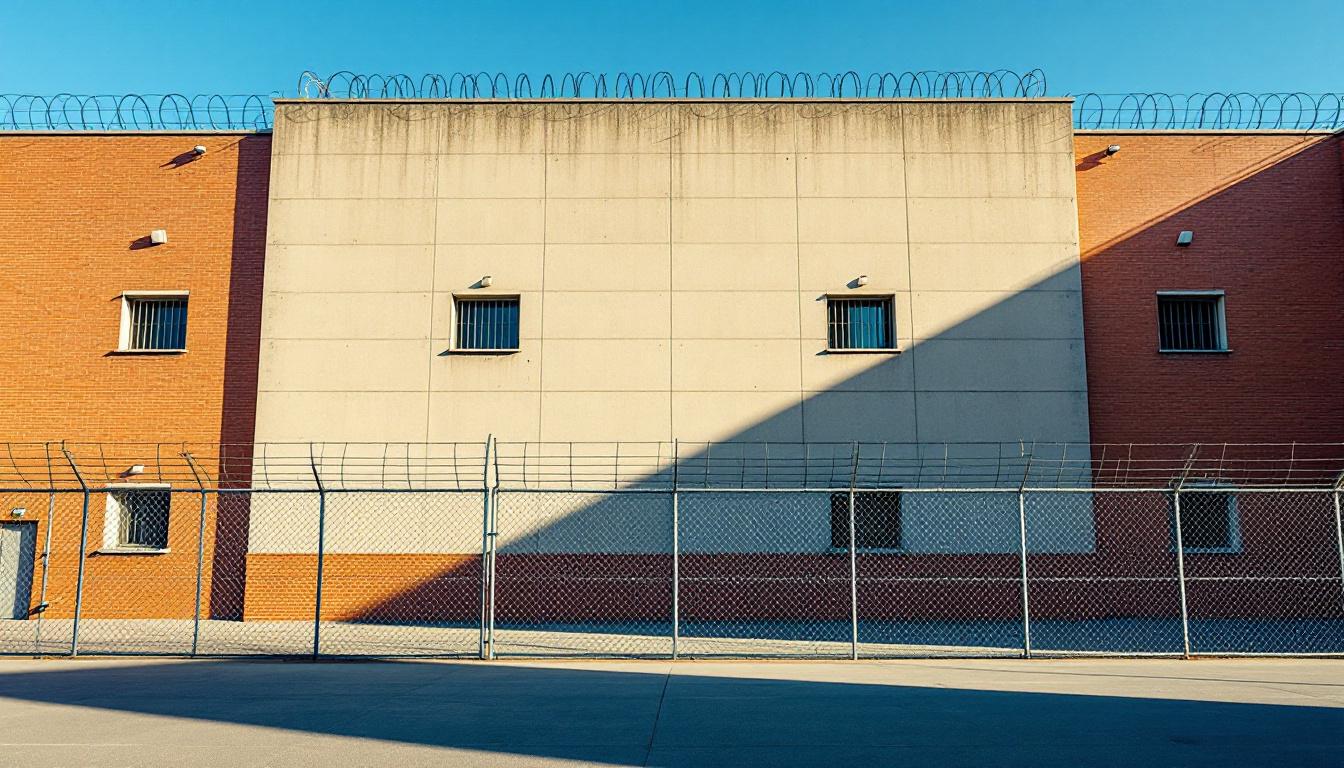
Quick Navigation
How to contact an inmate at St James Sheriff Civil Division
This comprehensive guide will walk you through how to connect with an inmate at St James Sheriff Civil Division. Follow the steps below to find an inmate and send letters and photos:
- Search for the inmate using our search tool below
- Create your account or log in to Penmate
- Write your message (up to 6,000 characters)
- Send instantly - inmates receive printed copies daily
Find an Inmate
Search for an inmate to start communicating today
Tip: You can search by first name, last name, or inmate ID number
To contact a person at St James Sheriff Civil Division start by searching for the person on the official facility website. Perform a search by following these steps:
- Step 1: Enter their first name and last name into the search form and click "Search"
- Step 2: Locate their inmate record
- Step 3: Write down their Inmate ID and any housing information provided
Important! Be sure to enter the person's full name. Nicknames should not be used.
How to Send Messages to Inmates

You can use your phone or computer to send emails, letters, and photos to an inmate. Messages are sent electronically to inmate tablets or kiosks at the facility. If you would like to send a message, start by searching for an inmate at St James Sheriff Civil Division.
Sending Photos and Postcards

A great way to send love and support to a loved one at St James Sheriff Civil Division is to send photos and postcards. It only takes a few minutes to send photos from your phone and it makes a huge difference. You can also mail postcards with words of support and inspiration, or design your own postcard for special moments like birthdays and holidays.
Important! Be sure not to send any explicit photos or they may not be approved by the facility. You can also use a photo printing app like Penmate to make sure your photos are printed at the correct size (4x6 or 3x5) and are mailed according to the rules and regulations of St James Sheriff Civil Division.
Frequently asked questions about St James Sheriff Civil Division
-
How long does it take to deliver a message?
If you're sending an email message your letter is usually delivered within 24-48 hours. For messages sent via mail you should expect delivery within 3-7 days. All messages will need be approved by St James Sheriff Civil Division.
-
How much does it cost to send a message to St James Sheriff Civil Division?
You can send a message free using your phone or mail a message via USPS for the price of a $0.60 stamp and envelope. You can also purchase credits or e-stamps from services starting at $1.99.
-
What services can I use to contact an inmate at St James Sheriff Civil Division?
Penmate
You can use Penmate to send letters and photos to an inmate from your phone. It's an easy way to stay in touch during your loved one's incarceration. Use the inmate locator to find an inmate's location and contact information, then you can send messages within a few minutes.
Securus messaging
Securus may be another option for communicating with an inmate at St James Sheriff Civil Division. You can create a friends and family account and purchase credits to send messages. All messages will be reviewed and must be approved by the facility.
JPay
Some county jails and state prisons may support sending messages with JPay. You must register an account with the system, find your loved one, and purchase stamps to send messages. For some locations you can also attach photos.
Smart Jail Mail
You may also check if Smart Jail Mail is available at St James Sheriff Civil Division. Smart Jail Mail is operated by Smart Communications and has contracted with some state and county jails. After purchasing credits, your messages and photos are sent to the facility, printed out, and then handed out to your loved one.
-
What is the mailing address of St James Sheriff Civil Division?
Mailing address:
St James Sheriff Civil Division
5800 LA-44
Convent, LA 70723
-
What are the visiting hours at St James Sheriff Civil Division?
Visiting hours at St James Sheriff Civil Division vary by housing unit and security level. Generally, visits are scheduled on weekends and holidays, with some facilities offering weekday visits. Contact the facility directly for the current visiting schedule. Visits typically last 30-60 minutes and must be scheduled in advance.
-
What items are prohibited when sending mail to St James Sheriff Civil Division?
Prohibited items typically include: cash, personal checks, stamps, stickers, glitter, glue, tape, staples, paperclips, polaroid photos, musical or blank greeting cards, hardcover books, magazines with staples, and any items containing metal or electronics. Only send letters on plain white paper with blue or black ink. Photos must be printed on regular photo paper (no Polaroids). Always check with St James Sheriff Civil Division for their specific mail policies.
-
How do I send money to an inmate at St James Sheriff Civil Division?
You can send money to an inmate at St James Sheriff Civil Division through several methods: 1) Online using JPay, Access Corrections, or the facility's approved vendor, 2) Money orders mailed directly to the facility with the inmate's name and ID number, 3) Kiosks located in the facility lobby, or 4) Over the phone using a credit or debit card. Fees vary by method, typically ranging from $2.95 to $11.95 per transaction.
-
Can I schedule a video visit with an inmate at St James Sheriff Civil Division?
Many facilities now offer video visitation as an alternative to in-person visits. At St James Sheriff Civil Division, video visits may be available through services like Penmate, Securus Video Connect, GTL, or ICSolutions. Video visits typically cost $10-20 for 20-30 minutes and must be scheduled in advance. You'll need a computer or smartphone with a camera and reliable internet connection. Contact the facility for their specific video visitation policies and approved vendors.
-
What identification do I need to visit an inmate at St James Sheriff Civil Division?
All visitors must present valid government-issued photo identification such as a driver's license, state ID, passport, or military ID. Minors must be accompanied by a parent or legal guardian who can provide the minor's birth certificate. Some facilities require visitors to be on the inmate's approved visitation list, which may require a background check. Contact St James Sheriff Civil Division for specific ID requirements and visitor approval procedures.
-
How can I find out an inmate's release date?
To find an inmate's release date at St James Sheriff Civil Division, you can: 1) Use the online inmate search tool if available, 2) Call the facility's records department, 3) Contact the inmate's case manager or counselor, or 4) Have the inmate provide this information during a call or visit. For privacy reasons, some facilities only release this information to immediate family members.
Facility Overview
Contact Information
St James Sheriff Civil Division5800 LA-44
Convent, LA 70723
Official Website

About St James Sheriff Civil Division
Nestled in the heart of Convent, Louisiana, within St. James Parish, this correctional facility serves as a vital component of the region’s criminal justice infrastructure. The St. James Parish Jail, LA operates with a dual mission that balances secure custody with meaningful opportunities for personal growth and community reintegration. As a county jail facility, it typically houses individuals awaiting trial, serving shorter sentences, or participating in various court-ordered programs, reflecting the diverse needs of residents from throughout the parish and surrounding areas.
The facility’s approach to offender management emphasizes both accountability and support, recognizing that effective corrections requires more than secure housing. Residents services may include educational programming, substance abuse counseling, and vocational training opportunities designed to address underlying issues that often contribute to criminal behavior. The LA correctional facility generally maintains connections with local community organizations and service providers, facilitating a network of support that extends beyond the facility’s walls. This community-centered approach reflects the understanding that successful reintegration benefits not dedicated individual residents but the broader St. James Parish community as well.
Programming at the county jail typically focuses on practical life skills, mental health support, and preparation for release back into the community. Staff members often work closely with residents to develop individualized plans that address specific needs and circumstances, whether related to addiction recovery, job readiness, or family reunification. Through this comprehensive approach to rehabilitation, the facility strives to reduce recidivism while maintaining the safety and security that the community expects from its correctional institutions.
Programs & Services
Rehabilitation initiatives at St. James Parish Jail typically focus on addressing the underlying factors that contribute to criminal behavior while preparing residents for successful community reintegration. The facility’s approach emphasizes skill-building and personal development through structured programming. These initiatives may deliver services designed to help residents develop both practical abilities and emotional coping strategies during their incarceration.
Educational and vocational initiatives form a cornerstone of the facility’s rehabilitation efforts. Education programs often include basic literacy instruction, GED preparation, and life skills training that help residents build foundational knowledge for future success. Vocational training opportunities may offer hands-on instruction in trades such as carpentry and welding, providing residents with marketable skills upon release. These programs typically emphasize both technical competency and workplace readiness, helping participants understand professional expectations and safety protocols.
Support services and therapeutic initiatives address the personal challenges many residents face. Anger management programming may deliver structured sessions that teach conflict resolution and emotional regulation techniques. Also, faith-based services often provide spiritual guidance and community support for residents seeking this type of assistance. Restorative justice initiatives typically focus on helping residents understand the impact of their actions while developing accountability and empathy. These therapeutic approaches often work together to support residents’ personal growth and preparation for successful community reentry.
Daily Life & Visitation
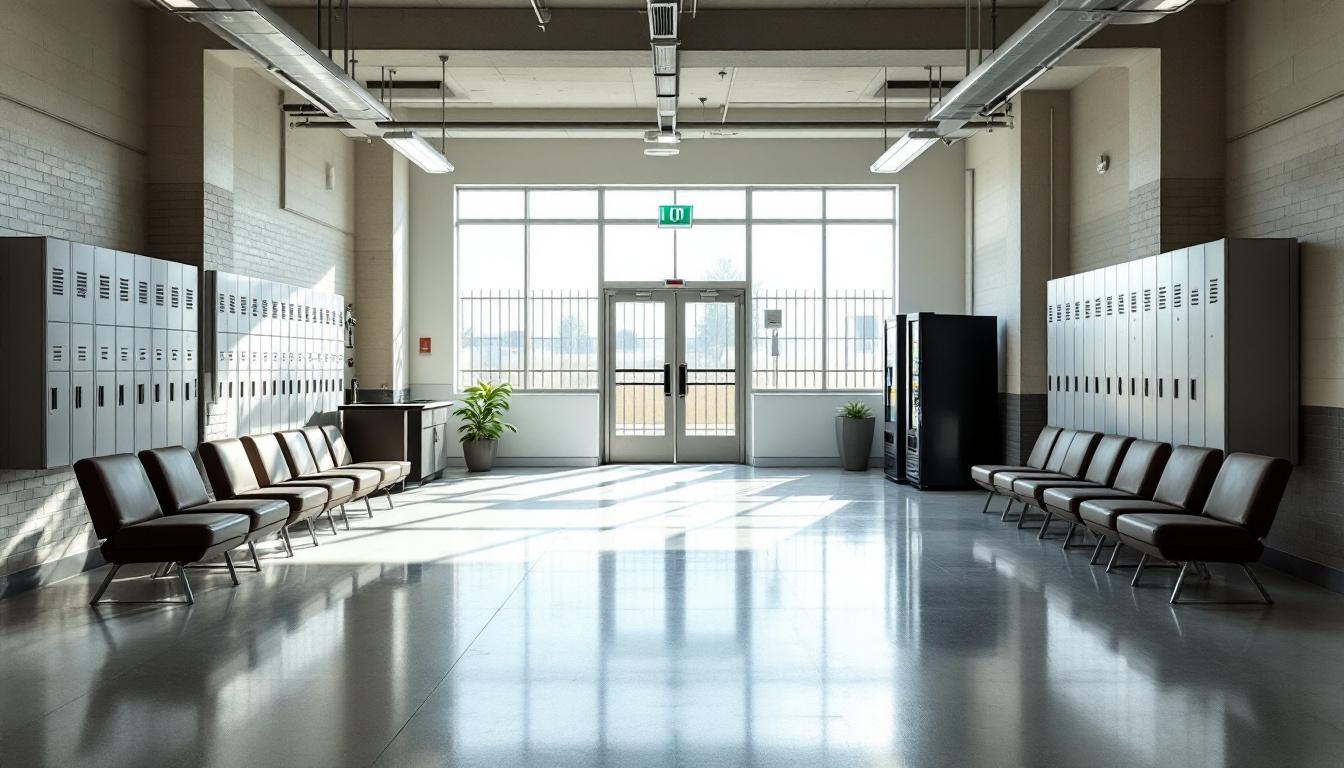
Structured routines begin early each morning and consistently guide residents through their day at St. James Parish Jail. Today’s schedule typically includes designated times for meals, programming activities, and personal care, creating a predictable framework that many residents find helps them maintain focus and stability. Count times occur regularly throughout the day, ensuring accountability while allowing residents to participate in various structured activities between these security procedures.
Living accommodations generally consist of shared housing units where residents may have access to basic amenities including beds, storage space for approved personal items, and common areas for interaction during designated periods. Meals are typically served in dining areas or housing units at consistent times, with menus that aim to meet basic nutritional requirements. Also, residents usually have opportunities to purchase additional items through the commissary system, which may include snacks, hygiene products, and writing materials to help maintain connections with family members.
Recreation and exercise opportunities often deliver structured physical activity through scheduled yard time or indoor recreation periods, depending on facility capacity and security considerations. However, programming schedules may also include educational components, substance abuse counseling, or vocational training that residents can participate in during their stay. Visitation policies typically allow family members to maintain contact through scheduled visits, phone calls, and correspondence, though specific arrangements generally depend on security classifications and facility procedures. Work assignments within the facility may include kitchen duties, cleaning responsibilities, or maintenance tasks that provide residents with daily structure while contributing to facility operations.
Ready to Connect?
Start communicating with your loved one today
Search for an Inmate
